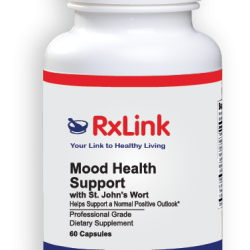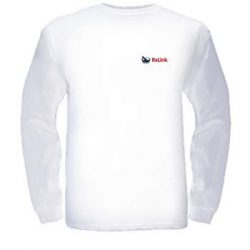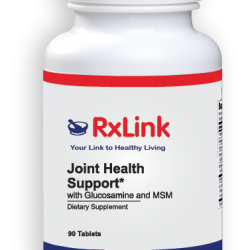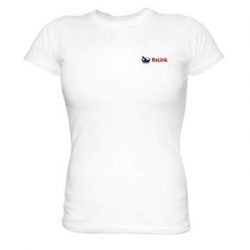Description
 DESCRIPTION
DESCRIPTION
RxLink Marine Fish Oils 1000mg contains a marine lipid concentrate that has been processed by molecular distillation. Our formula is an excellent source of omega-3 fatty acids, providing eicosapentaenoic acid (EPA, 18%) and docosahexaenoic acid (DHA, 12%) in their natural triglyceride form.
FUNCTIONS
Typical diets in developed countries deliver large amounts of saturated fatty acids and the polyunsaturated omega-6 linoleic and arachidonic acids and low levels of omega-3 fatty acids. Throughout evolution, humans were accustomed to diets providing roughly equal amounts of omega-6 and omega-3 fatty acids. However, during the last 200 years, the ratio of dietary omega-6:omega-3 fatty acids increased from about 1:1 to 20-25:1. Leading health professionals now recommend ratios between 4:1 and 10:1. A healthy balance of dietary omega-6 and omega-3 fatty acids appears to be a prerequisite for normal immune function. Dietary linoleic acid (18:2 omega-6) is a precursor to arachidonic acid (20:4) which in turn is a precursor for proinflammatory prostaglandin E2, leukotriene B4, and platelet aggregating thromboxane A2. The omega-3 fatty acids EPA and DHA provide a natural counterbalance, because they serve as precursors for the anti-inflammatory prostaglandins E1 and E3, and decrease the formation of prostaglandin E2 and thromboxane A2. Among other factors, sufficient dietary levels of EPA, DHA and other omega-3 fatty acids are also important in the regulation of normal blood lipoprotein and cholesterol levels. Marine Fish Oil 1000 mg is molecularly distilled to remove PCB’s, dioxins and heavy metals such as lead and mercury. The process also reduces the oxidation of the oil and helps keep it fresh and stable. INDICATIONS Marine Fish Oils may be a useful dietary supplement for those who do not consume enough oily fish and other sources of omega-3 fatty acids in their diets to receive desirable amounts of long chain omega-3 fatty acids.
SIDE EFFECTS No adverse effects have been reported.
FORMULA (WW #RxLink10306)
1 Softgel Capsule Contains:
Vitamin E ………………………………………………..9 IU
Fish Oil Concentrate ……………………….1,000 mg
Eicosapentaenoic Acid (EPA) [18%] ……180 mg
Docosahexaenoic Acid (DHA) [12%] ….120 mg
Total Omega-3 Fatty Acids ………………..300 mg
Other Ingredients: Softgel (gelatin, glycerin and water) This product contains NO sugar, salt, dairy, yeast, wheat, gluten, corn, preservatives, artificial colors or flavors. SUGGESTED USE As a dietary supplement, adults take 1 softgel capsule 2 times daily with meals, or as directed by a health care professional.
STORAGE Store in a cool, dry place, away from direct light. Keep out of reach of children.
REFERENCES
Albert CM, Hennekens CH, O’Donnell CJ, Ajani UA, Carey VJ, Willett WC, Ruskin JN, Manson JE. Fish consumption and risk of sudden cardiac death [see comments]. Jama 1998;279:23-8. Bougnoux P, Germain E, Chajes V, Hubert B, Lhuillery C, Le Floch O, Body G, Calais G. Cytotoxic drugs efficacy correlates with adipose tissue docosahexaenoic acid level in locally advanced breast carcinoma. Br J Cancer 1999;79:1765-9. Cerbone AM, Cirillo F, Coppola A, Rise P, Stragliotto E, Galli C, Giordano M, Tremoli E, Di Minno G. Persistent impairment of platelet aggregation following cessation of a short-course dietary supplementation of moderate amounts of N-3 fatty acid ethyl esters. Thromb Haemost 1999;82:128-33. Chin JP, Dart AM. HBPRCA Astra Award. Therapeutic restoration of endothelial function in hypercholesterolaemic subjects: effect of fish oils. Clin Exp Pharmacol Physiol 1994;21:749-55. Chin JP, Dart AM. How do fish oils affect vascular function? Clin Exp Pharmacol Physiol 1995;22:7181. Christensen JH, Christensen MS, Dyerberg J, Schmidt EB. Heart rate variability and fatty acid content of blood cell membranes: a dose-response study with n-3 fatty acids. Am J Clin Nutr 1999;70:331-7. Christensen JH, Gustenhoff P, Korup E, Aaroe J, Toft E, Moller J, Rasmussen K, Dyerberg J, Schmidt EB. Effect of fish oil on heart rate variability in survivors of myocardial infarction: a double blind randomised controlled trial. Bmj 1996;312:677-8. Christensen JH, Gustenhoff P, Korup E, Aaroe J, Toft E, Moller JM, Rasmussen K, Dyerberg J, Schmidt EB. [n-3 polyunsaturated fatty acids, heart rate variability and ventricular arrhythmias in post-AMIpatients. A clinical controlled trial]. Ugeskr Laeger 1997;159:5525-9. Christensen JH, Korup E, Aaroe J, Toft E, Moller J, Rasmussen K, Dyerberg J, Schmidt EB. Fish consumption, n-3 fatty acids in cell membranes, and heart rate variability in survivors of myocardial infarction with left ventricular dysfunction. Am J Cardiol 1997;79:1670-3. De Caterina R, Endres S, Kristensen SD, Schmidt EB. n-3 fatty acids and renal diseases. Am J Kidney Dis 1994;24:397-415. de Deckere EA, Korver O, Verschuren PM, Katan MB. Health aspects of fish and n-3 polyunsaturated fatty acids from plant and marine origin. Eur J Clin Nutr 1998;52:749-53. Emken EA, Adlof RO, Duval SM, Nelson GJ. Effect of dietary docosahexaenoic acid on desaturation and uptake in vivo of isotope-labeled oleic, linoleic, and linolenic acids by male subjects [In Process Citation]. Lipids 1999;34:785-91. Endres S, De Caterina R, Schmidt EB, Kristensen SD. n-3 polyunsaturated fatty acids: update 1995. Eur J Clin Invest 1995;25:629-38. Horrocks LA, Yeo YK. Health benefits of docosahexaenoic acid (dha) [In Process Citation]. Pharmacol Res1999;40:211-25.
These statements have not been evaluated by the Food and Drug Administration. This product is not intended to diagnose, treat, cure, or prevent any disease.





